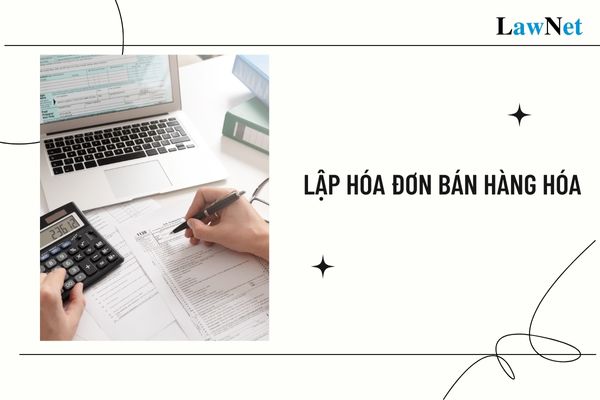When is the invoicing time for sale of goods in Vietnam?
When is the invoicing time for sale of goods in Vietnam?
According to Clause 1, Article 9 of Decree No. 123/2020/ND-CP, regulations regarding the invoicing time are as follows:
Invoicing time
1. The invoicing time for sale of goods (including the sale of state property, confiscated property, assets added to the state fund, and sale of national reserve goods) is the time of transfer of ownership or right to use the goods to the buyer, regardless of whether payment has been received or not.
2. The invoicing time for service provision is the time when the service provision is completed, regardless of whether payment has been received or not. In case the service provider receives payment before or during the service provision, the invoicing time is the time of payment (excluding the case of deposit or advance payment to ensure the execution of contracts for services such as accounting, auditing, financial consultancy, tax; valuation; survey, technical design; supervision consultancy; investment project setup).
3. In case of multiple deliveries or handing over of individual items or service stages, an invoice must be issued each time for the corresponding quantity or value of goods or services delivered.
...
Thus, the invoicing time for sale of goods is the time of transfer of ownership or the right to use the goods to the buyer, regardless of whether payment has been received or not.
Note: The goods mentioned include the sale of state property, confiscated assets, assets added to the state fund, and sale of national reserve goods.

When is the invoicing time for sale of goods in Vietnam?
Vietnam: How many types of invoices are there?
According to the provisions of Article 8 Decree No. 123/2020/ND-CP, the following types of invoices exist:
(1) Value-added tax invoice
The value-added tax invoice is for organizations declaring VAT using the deduction method, used for activities such as:
- Selling goods or providing services within the domestic market;
- International transport activities;
- Exporting to non-tariff zones and cases considered as export;
- Exporting goods, providing services abroad.
(2) Sales invoice
The sales invoice is for organizations and individuals such as:
- Organizations and individuals declaring and calculating VAT using the direct method for activities such as:
+ Selling goods or providing services within the domestic market;
+ International transport activities;
+ Exporting to non-tariff zones and cases considered as export;
+ Exporting goods, providing services abroad.
- Organizations and individuals within non-tariff zones when selling goods or providing services into the domestic market and when selling goods or providing services among organizations and individuals within non-tariff zones, exporting goods, providing services abroad, with the invoice clearly stating “For organizations and individuals within non-tariff zones.”
(3) Electronic invoice for selling state-owned assets
The electronic invoice for selling state-owned assets is used when selling the following assets:
- State-owned assets at agencies, organizations, units (including state-owned houses);
- Infrastructure assets;
- State property assigned to enterprises for management not accounted for as state capital at enterprises;
- Assets of projects using state capital;
- Assets established under national ownership;
- State-owned assets seized as decided by competent authorities;
- Materials and equipment retrieved from the management of state-owned assets.
(4) Electronic invoice for selling national reserve goods
The electronic invoice for selling national reserve goods is used when agencies or units within the national reserve system sell national reserve goods in accordance with the laws.
(5) Other types of invoices, including:
- Stamps, tickets, cards with forms and content as prescribed by this Decree;
- Receipts for air freight charges; receipts for international transport fees; receipts for banking service charges except those stipulated in point a of this clause with forms and content formulated according to international practices and relevant legal regulations.
(6) records printed, issued, used, and managed as:
- Invoices including depot delivery notes for internal transportation;
- Delivery notes for goods sent for sale by agents.
What are the prohibited acts in the field of invoices and records for organizations and individuals selling or supplying goods in Vietnam?
According to Clause 2, Article 4 Decree No. 123/2020/ND-CP, prohibited acts in the field of invoices, and records for organizations and individuals selling and providing goods include:
- Committing fraudulent acts such as using illegal invoices, illegally using invoices;
- Obstructing tax officials from performing their duties, specifically acts that harm the health or dignity of tax officials during the inspection of invoices and records;
- Unlawful access, alteration, or destruction of information systems regarding invoices and records;
- Offering bribes or conducting other acts related to invoices and records for improper gains.

